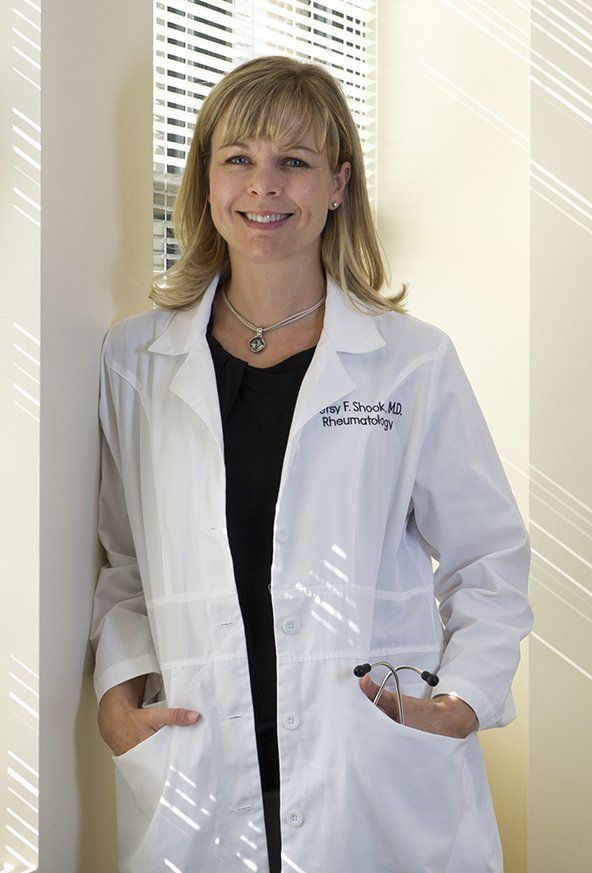Betsy F. Shook, MD
Understanding osteoporosis and its symptoms
Osteoporosis is a disease that causes bones to thin and weaken, resulting in a higher frequency of broken bones from things such as a minor fall. It's called a "silent disease" because patients don't experience warning symptoms that the condition is developing until it's too late and they have broken a bone. That's why preventive screening is important to help identify osteoporosis in its early stages.
There is a wide range of risk factors that increase your chances of developing osteoporosis, some that are either in or out of your control. Controllable risk factors include: smoking, excessive alcohol consumption, excessive weight loss, inactive lifestyle, or low calcium or vitamin D intake/poor absorption. Uncontrollable risk factors include: age, family history, ethnicity, certain medications, low body weight/small, thin frame or being menopausal.
If you have any of these risk factors, ask your doctor whether you need a bone density test, also called a DXA scan. Using only a small amount of radiation, this test checks bone density and can confirm an osteoporosis diagnosis.
Despite having some risk factors, osteoporosis is not inevitable, and taking certain measures can help prevent the disease. Although there is no known cure for osteoporosis, you can proactively protect your bones by exercising regularly, maintaining good nutrition and dietary habits, and practicing fall prevention.

